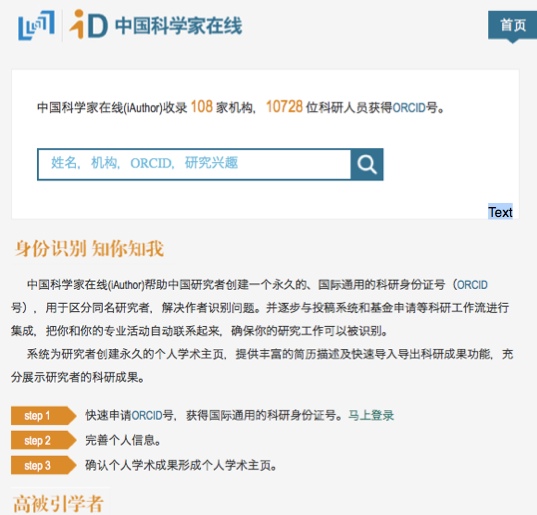[读这篇文章在中国]
Name ambiguity is a serious issue for Chinese researchers. Not only do many share a common surname, those researchers who publish in English-language journals have to contend with transliteration issues and multiple versions of their name being associated with their research activities. Similarly, researchers who publish in Chinese have a difficult time making their research works visible and discoverable in English-language search interfaces.
The National Science Library of the Chinese Academy of Sciences has decided to address these issues head-on. “We fully recognize the importance of the unique author identifiers, especially so for Chinese authors. Like me, there are over 90 million people with my surname, Zhang,” said Xiaolin Zhang, NSL Director and the Secretary General of the STM Journal Association. The NSL sees the value in an international, open, and researcher-driven person identifier. “We are willing to work with ORCID to promote it in CAS and in the country,” he added. To this purpose, the NSL is enlisting cooperation from Web of Science, the Chinese Science Citation Database (CSCD), Chinese Social Science Citation Index (CSSCI), CAS STM Journal Association, University STM Journal Association, and a number of major research and academic libraries. NSL has developed the iAuthor platform, as an easy Chinese frontgate to register for an ORCID identifier and to interoperate with Chinese journals, CSCD and others. On October 28, the NSL formally launched the iAuthor service.

iAuthor integrates ORCID identifiers in three steps. First, a researcher may register for an ORCID identifier and connect it with their iAuthor account. Second, the researcher may create a perm
anent webpage, which will include their ORCID iD in the web address. Third, researchers may exchange publication information between iAuthor and ORCID, enabling easy updates of their iAuthor record for those researchers who use their ORCID iD when they publish articles and related datasets.
ORCID is a researcher-driven system, and one key aspect is engagement of the researchers themselves in using their identifier in the services that embed ORCID. The NSL has begun this effort, and the iAuthor system is gaining attention among CAS researchers and by universities, research institutes, and publishers in China. As Zhang Jianyong, Executive Deputy Director of the Data Research and Curation Center of NSTL, explained, “It is good news that more and more researchers have recognized the value of an ORCID identifier.” In addition to registering for an identifier, NSL is encouraging Chinese researchers to link to their works, affiliation, and both the Chinese and transliterated version of their name.
To continue and expand upon these activities, the National Science Library and ORCID have signed a joint cooperation framework. ORCID and NSL are very much looking forward to continued collaboration in community engagement, workflow specification, and development of services for integration of ORCID identifiers in research systems.
iAuthor Strategic Partners. Left to Right: Linda Guo, CEO,Thomson Reuters China; Gan Youbin, Associate Director, Library of Huazhong University of Science and Technology; Zhang Xiaolin, Director, NSL; Laure Haak, Executive Director, ORCID; Yan Shuai, Chairman, Society of China University Journals.
